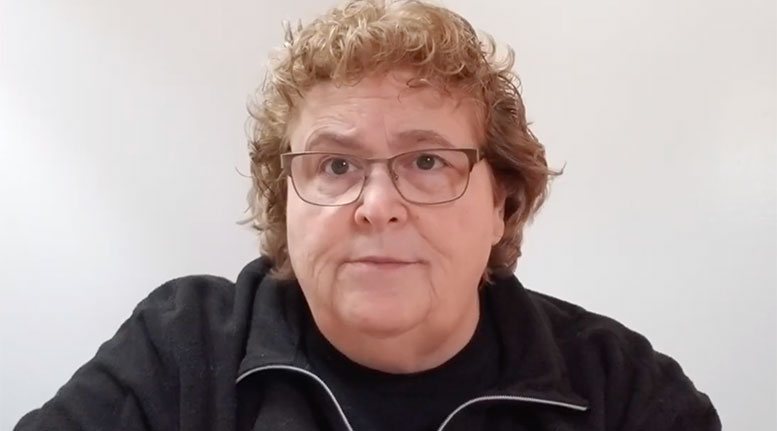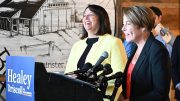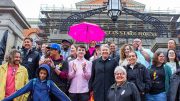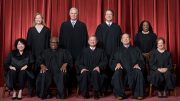Boston Pride’s Apology Results in Backlash Again; Pride 4 the People, Community Leaders and Others talk about People of Color and Why The Statement Released Isn’t Representative Of All
By: Audrey Cole & Chris Gilmore/TRT Reporters—
BOSTON—Last week Boston Pride (BP) issued a press release letting the LGBTQ+ community know that the organization is undergoing a transformation to take responsibility for “their actions.”
Their actions involve a series of events including what has been explained as a “unilateral decision to remove any reference of Black Lives Matter” from an official “statement on police brutality after the murder of George Floyd, Breonna Taylor and Tony McDade,” that lead to the resignation of 80 percent of Boston Pride’s volunteer workforce in June 2020, according to a former statement from Jo Triglio (they/them), former Boston Pride Communications team and co-founder of Pride 4 The People (P4TP).
“… the [Boston] Pride Board … rewrote a statement, written by the Communications Team, condemning unjust, racist police violence, and posted it without consulting the Chair of Black Pride or the Communications Team. The statement was met with public outrage over Boston Pride’s persistent and ongoing neglect of issues of racism and white-centeredness,” read Tuesday’s release from Pride 4 the People – Boston, and Trans Resistance MA.
P4TP has since “demanded the current Pride Board to step down” to no avail. The organization, composed of LGBQ+ people of color, BIPOC, QTPOC, and allies, “proposed a transition plan to diversify the [Boston Pride] board and rewrite the bylaws to include power-sharing, checks and balances, and transparency.”
The BP Board has not met nor answered their demands, “refusing” to do so, instead.
“After six months of silence, the Boston Pride Board has released a transformation plan decorated with bells and whistles that attempts to divert attention away from the lack of structural transformation that is being proposed,” read P4TP’s statement. “This proposed ‘transformation’ process is merely a fancy performance designed to protect the absolute and exclusive power of the current board. It includes no structural change: no change to the bylaws, to the distribution of power within the organization, nor to the majority vote of the current Board.”
Triglio is one of 21 Committee members, chairs, and volunteers who walked out this June to protest what they deemed as the BP Board’s erasure of such a relevant and critical statement pertaining to BLM, police abuse, and the murder of various black men and black people.
A key resignation
TRT learned earlier this week that the only Latinx BP Board member, Marco Torres**, has resigned from the Board. Linda DeMarco, BP Board President, confirmed his resignation to this publication. The Rainbow Times reached out to Torres for a statement but he has not yet responded to the attempts to reach him.
In a recent video released by DeMarco, she explained what BP has been working on as the Board moves ahead with plans to be more inclusive. But, Jeffrey Rogers, a community member from Cambridge, Mass., argues that the organization has missed the mark again.
“The only thing I saw and heard was an arrogant white woman who doesn’t address people of color, nor sounds interested in communicating with many community members over the constant BP abuse of brown, indigenous and black people and their disdain to work with people like me,” said Rogers, a black gay man who protested BP’s corporate friendliness and lack of help to PoC organizations in 2015. “I still don’t see why they haven’t met with the new organization, an organization that would know how to represent us all. To see that would be the beginning of them ‘getting it.’”
Clarifying their “transformation?”
To clarify BP’s stance and get answers for our readers pertaining to what Boston Pride has learned from the process they claim to have undergone and about why the BP Board had not yet met with community members, The Rainbow Times sent DeMarco six direct questions* (found at the end of this story for transparency) to the organization. DeMarco, however, circumvented them and instead provided a nearly identical statement as the one found on their release, focusing on the evolution of the organization, an evolution they did not explain to The Rainbow Times when given the platform to do so.
“Boston Pride is continuing the ongoing transformation process and the Letter to Our Community issued last week speaks for itself, as does the information put on the website to address the issues facing our organization and our community,” read ‘DeMarco’s’ reply to the questions* asked. “As we said, we’ve heard the concerns of our community, who were disappointed by the Boston Pride Board’s actions this summer, and we’ve been working hard over the last several months to address those concerns in a comprehensive manner.”
The transformation they speak of, some allude, is not enough because they are “dismissive” of the damage inflicted within the community by the division that not entering into a dialogue causes to all parties involved.
“Taking accountability is good,” said Michael Histen aka Majenta, a gay cis man who is also a drag queen. “But, from what I’ve seen, the changes they are proposing are ignoring the root problem, and seem unlikely to bring about the change that so many in our community are seeking.”
However, DeMarco maintains that they’re working on delivering a cohesive plan, inclusive of all.
“Transformation is a process and Boston Pride will continue to evolve as our community evolves,” stated DeMarco via a statement. “We are creating a process that is interactive, representative of our community, transparent, impactful, and sustainable. We need broader representation throughout our community, and we are prioritizing the representation of Queer, Transgender/Gender non-binary, Black, Latinx, Indigenous and other people of color on our board, on our committees and at our events.”
Yet some contend that evolving “with” the community is not enough when there is a Board that is not representative of the people it serves. That is what a transgender man and executive director of the Sexual Minorities Educational Foundation, Inc., Ben Power, asserts when he refers to the “fact that the Boston Pride board” not “being racially diverse is very problematic and should not exist as such.”
“Some or all of the white leadership should step down and make space for BIPOC and QTPOC people who are in a better position to steer the event,” said Power, who is also the Curator, Sexual Minorities Archives. “Boston Pride sets an example for how our diverse communities can either unite or divide against each other. It is unacceptable to privilege the LGBTQIA+ movement over the Black Lives Matter movement, Black Trans Lives Matter movement, and Latinx Pride movements. Indeed, these movements are all interwoven; the Boston Pride board and event should reflect that.”
Others also claim they have witnessed Boston Pride’s struggle with this issue for too long—but no change comes out of the experiences from the past.
“Boston Pride is a reactionary organization,” said JP Delgado Galdamez, Communications Associate at The Network/La Red to TRT earlier this year about the organization. “Pride didn’t start showing they cared about Black people and People of Color until members of these communities, often also people who are queer and transgender, started doing actions like blocking the parade route. Boston Pride did not read the room when they decided to post a statement that didn’t even meet the lowest bar of them all, saying #BlackLivesMatter.”
Transformation, at a cost?
In a press statement released in June 2020, Boston Pride spoke of the agency they hired for the task at hand. Dorrington & Saunders, LLC, is an agency that “specializes in transforming organizations to honor and operationalize their social justice missions from theory to application to practice.”
Pride 4 the People contends that such funding could have been better put to use locally.
“During these challenging times the Boston Pride Board has spent thousands, if not tens of thousands of dollars, paying a consulting firm to help them maintain their power and to finally teach them about structural racism,” said Pride 4 the People of BP’s move to hire Dorrington & Saunders. “It should go without saying that if someone still needs to be educated about the basics of structural racism, they are not qualified to hold a leadership role in a major social justice organization, and certainly should not be paying for that education with funds that should instead be serving the most disadvantaged in our community.”
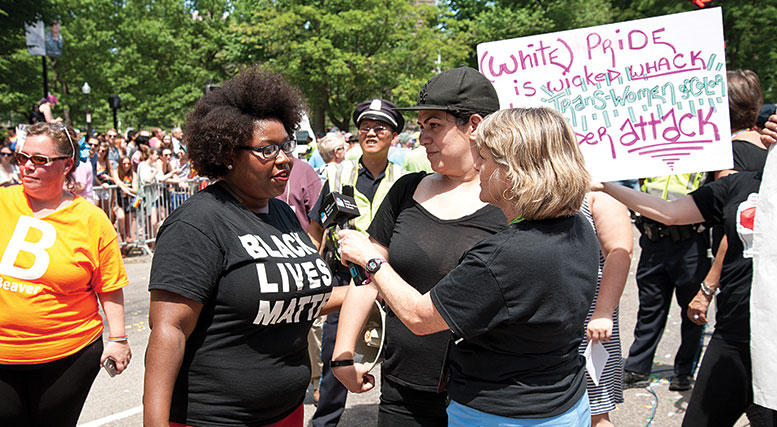
Black Lives Matter Boston and #WickedPissed co-organizer, Daunasia Yancey interviewed in 2015 when the action halted Boston Pride’s Parade; Photo: TRT Archives 2015 (Copyright)
For Majenta, it’s important to put the level and amount of the funding into perspective too. She does so by comparing it to what they do for others, with their own self-run show, to what Boston Pride donated just last year to organizations.
“I run a digital drag show called ‘Full Spin’, which is funded solely by donations and tips, and over 6 months, as just one person, I’ve managed to get $26,000 into the hands of queer artists and social justice organizations,” she said. “Meanwhile, Boston Pride, which is an entire massive organization, issued [approximately] $46,000 in community grants in 2019. I cannot speak to all of their financial actions, but I share this to point out that surely, if one person can raise more than half of their annual grant total, then they could be far more effective at doing their job in supporting the community.”
No community involvement
According to P4TP, that transformation process referred to by BP is detrimental to everyone since it has not been done “in collaboration with its own community” nor through the use of the local resources or lived experiences, knowledge, and feedback from those who helped them along the way.
“None of this work has been done in partnership with community organizations or voices, nor with its almost entire Volunteer workforce who was forced to resign because ethically they could no longer work with the current board,” the P4TP “Response to Boston Pride’s Faux Transformation” statement read. “This proposed ‘transformation’ process has been developed in isolation, without transparency, outreach, or participation of the community.”
Too little too, too late?
The argument that an organization can claim to learn to be inclusive without applying that inclusion in the process they undergo is something that some contend is at the core of Boston Pride’s crux. The belief in BP’s plan of inclusion that DeMarco speaks about in her message would only happen, Majenta asserts, when there is a candid dialogue with the same members of the marginalized segments of the community that have felt ostracized by BP through the years, in order to establish conviction and honesty.
“As an institution, they have lost an enormous amount of trust,” said Majenta. “Adding advisory committees does not signal a desire to truly change, especially when huge portions of the community have been offering advice and counsel on what to do for months (and even years) now and have felt completely ignored.
“At its core, Boston Pride simply has poor leadership that claims to be taking accountability without actually recognizing that what we need is new leadership that actually represents the community. Ultimately much of what they’re proposing is window-dressing without substance.”
And, such a history of lack of inclusion is not a circumstance that BP just encountered in the past five years. When Boston Pride had the opportunity to work with gender oppression, many years ago, they failed to do so, which prompted the formation of the Boston Dyke March, according to what Triglio told TRT in June 2020.
“In addition to being white-centered, Boston Pride was deeply male-centered and sexist in the ’80s and early ’90s,” they said. “The Boston Dyke March was founded in response to Boston Pride’s perpetual failure to address issues of gender oppression. The Trans Resistance March that took place a few weeks ago is yet another example.
“If Boston Pride were serving its community adequately, we would not need to start separate organizations or have separate marches.”
Nevertheless, DeMarco seems resolute that they are moving forward with their message.
“We are providing multiple opportunities for people to become involved in the organization including positions on the Transformation Advisory Committee, Board positions, and Community Advisory Council positions,” she said in the release. “We are receiving applications to all of the posted positions that can be found on the Boston Pride website. We are inviting everyone to join us as we build a better Boston Pride where the next generation of leaders will emerge.”
A representative of the people?
According to P4TP, Boston Pride has not either “reached out to, or collaborated with BITQPOC organizations in the Greater Boston LGBTQ community to develop this ‘transformation’ process.”
“Instead of a plan to populate the board with BITQPOC leaders, representation of queer Black, Indigenous, POC, and trans communities is relegated to powerless Community Advisory Councils,” said P4TP. “… these are more appropriately staff positions, not board positions. … this call for board members drastically limits potential applicants to those with specific educational and professional privilege. It is in itself an example of an institutional hurdle that prevents access to those who experience multiple forms of oppression.”
And this approach, Majenta argues, signals that the BP Board has selectively chosen those they work with and who, ultimately, best represents the BIPOC/Latinx LGBTQ+ community in Boston.
“The community has been asking for new leadership that represents all of us, especially BIPOC and trans voices,” said Majenta. “Opting to reject that request and instead keep the entire (very white) board, who have failed by their own admission shows that fundamentally they are unwilling to listen to the community and enact substantive change. If they truly believe they messed up, as their statement claims, then why do they insist on maintaining their power?”
Well-known for his activist work, Power insists that BP could do things differently.
“Boston Pride has had for many years the opportunity to listen to BIPOC and QTPOC voices in the LGBTQIA+ communities and respond affirmatively to their demands for full inclusion in the mission, messaging, and core leadership of the event,” said Power. “It has failed to do so. This is a glaring mistake that continues to be made by the Boston Pride board, one that does not reflect the diverse racial, gender identity, and sexual orientation populations in the greater Boston area.”
Pride for the People is asking all individuals, organizations, and businesses to not support the continued structural white-centeredness and racism maintained by the current Board of Boston Pride. Instead, join Trans Resistance at the 2nd annual March & Vigil, June 12th, 2021 at Franklin Park.
* NOTE: The six questions that The Rainbow Times sent to Boston Pride were:
- Can you confirm or deny the anonymous source’s claim that Marco Torres has already resigned from the Boston Pride Board? Explain whether you answer yes or no, or why you can’t answer this question
- Your statement starts with the word, “The bottom line is …” without first addressing the communities that allege to have been wronged by the Board. In retrospect, do you believe that you should have addressed the communities first and given them an explanation as to why all of these years have gone by without marked organizational and structural changes at BP before telling them what the “bottom line” was?
- Many don’t think that a white Board that has not allegedly addressed PoC or trans PoC inclusion can learn from their mistakes after there have been years of outcry for change only to allegedly fall on deaf ears. Why do you think that they will believe that it is different this year and moving on?
- Can you explain (in all you’ve learned) how an all-white Board can relate, comprehend, and empathize with the struggles that LGBTQ+ communities of color face in Boston? With the struggles that QT/BIPOC communities face?
- In hindsight, since you said you “were wrong” in your statement/video, would you have kept the wording that the original BP statement allegedly had with the words Black Lives Matter and George Floyd in it after the murder of Floyd and the protests that ensued as a result of it? Whose idea was to change it? What was the reasoning behind it?
- Are all other past Board Members staying put, in spite of much opposition to it? If so, who (besides yourself) is staying on Board? Why have you/they decided to stay? Please explain. What do you think you can do today vs. 7 years ago?
- State anything else you’d like to add that you deem appropriate and that I haven’t asked.
** Marco A. Torres, as of this moment (Dec. 14., 2020), has not replied to this publication’s e-mails, nor has he acknowledged their receipt.

